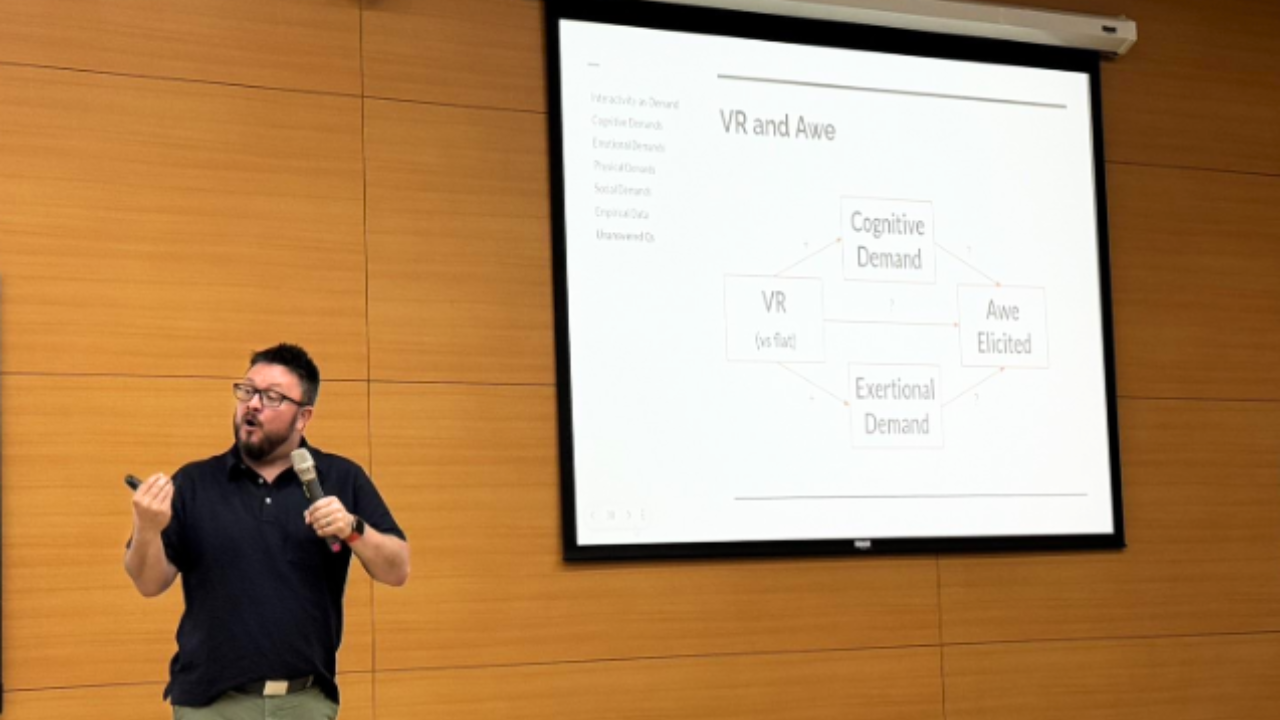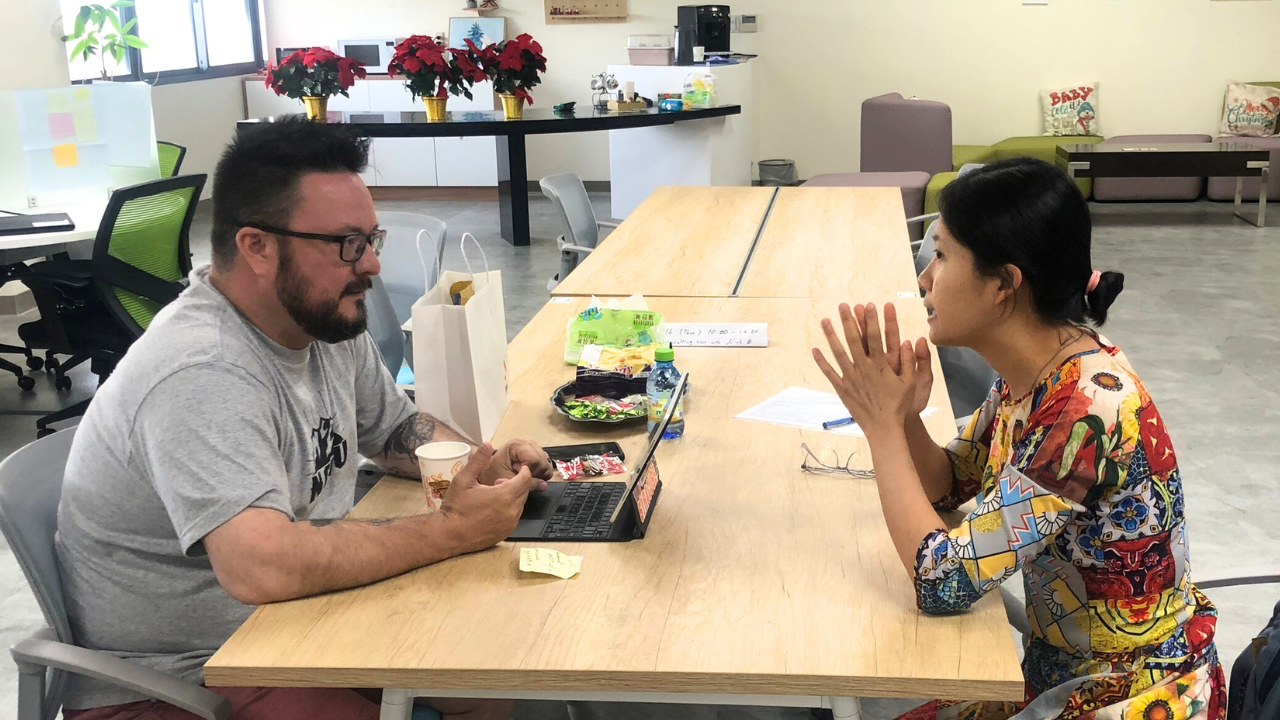The Future of Technology and Interactivity: The Educational Revolution of Video Games
【Article by Master's Program in Global Communication and Innovation Technology】
The rapid advancement of technology has led to an increasing reliance on interactive media. From social media to augmented reality, these tools have changed how we communicate and revolutionized how we seek entertainment and learning. The Master's Program in Global Communication and Innovation Technology at NCCU University held a seminar on May 14th to deeply explore the profound necessity of video games. They invited Associate Professor Nick Bowman from Syracuse University's School of Public Communications to share insights into the value and impact of video games in an increasingly digital world where human-technology interaction is growing closer.
Professor Nick Bowman specializes in media psychology, mainly focusing on interactive media's uses, processes, and effects. He has published over 150 peer-reviewed academic articles worldwide and is an editor for the Journal of Media Psychology. In the seminar, Professor Bowman compared the evolution of video games with other popular media and introduced the "Interaction as Demand" model. He discussed the theoretical models of mediated experience and their implications for future research.
Professor Bowman explained that video games have always been at the forefront of human-machine interaction, from the early 1950s electronic entertainment devices to today's immersive and interactive digital experiences. With technological advancements, these interactive experiences demand more from human cognition, emotions, physicality, and social attention. Through games, people can explore different courses of action, think about overcoming challenges, and engage in self-reflection through stories and role-playing, thus fostering the development of cognitive skills and emotional understanding.
The challenges and storylines in games require players to operate and control them, understand character backgrounds, adapt, and solve problems. These processes encourage critical thinking and problem-solving abilities, allowing players to learn valuable life lessons and experiences from the games.
Professor Bowman also discussed how games promote social interaction and a sense of community. Through players' social behaviors in digital worlds with their virtual avatars and other players, games become tools for fulfilling social needs. These elements enhance players' engagement and immersive experiences, increasing the attractiveness and impact of educational content.
Professor Bowman emphasized the importance of reconsidering games' potential s in education and developing more game designs that incorporate educational objectives. Games not only entertain but also have the potential to promote learning and personal development, helping students learn important life values in virtual environments. In today's digital age, using games as educational tools will create new possibilities for education.
Additionally, on May 16th from 9:30 AM to 12:20 PM, Professor Nick Bowman offered a one-on-one 20-minute consultation on topics such as career development, future planning, and internships. He patiently answered various students' questions and provided valuable advice, offering professional guidance for students' research, education, and career paths.

Prof. Nick Bowman (front row, fourth from left), Director of GCIT Trisha Lin (front row, third from left), Director of DCT Yi-Hsiu Chen (front row, first from right), Prof. Christine Cook (back row, first from left) happily took a photo with students. (Photo by GCIT)

Professor Bowman compared the evolution of video games to other popular media and introduced the "Interaction as Demand" model. (Photo by GCIT)

Professor Bowman emphasized that games have become a tool for meeting social needs, allowing players to experience them immersively. (Photo by GCIT)

Professor Bowman offered one-on-one 20-minute consultations, covering topics such as career development, future planning, and internships. He patiently answered various questions from the students. (Photo by GCIT)
